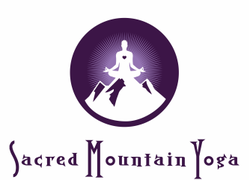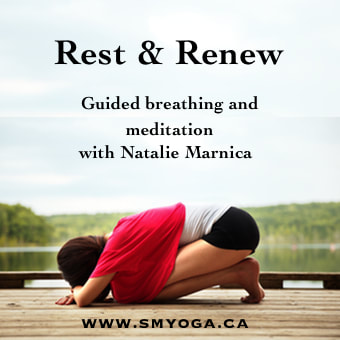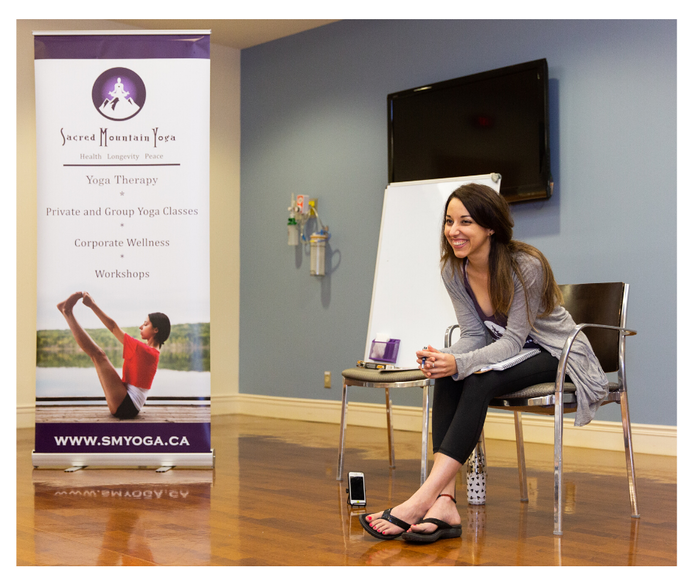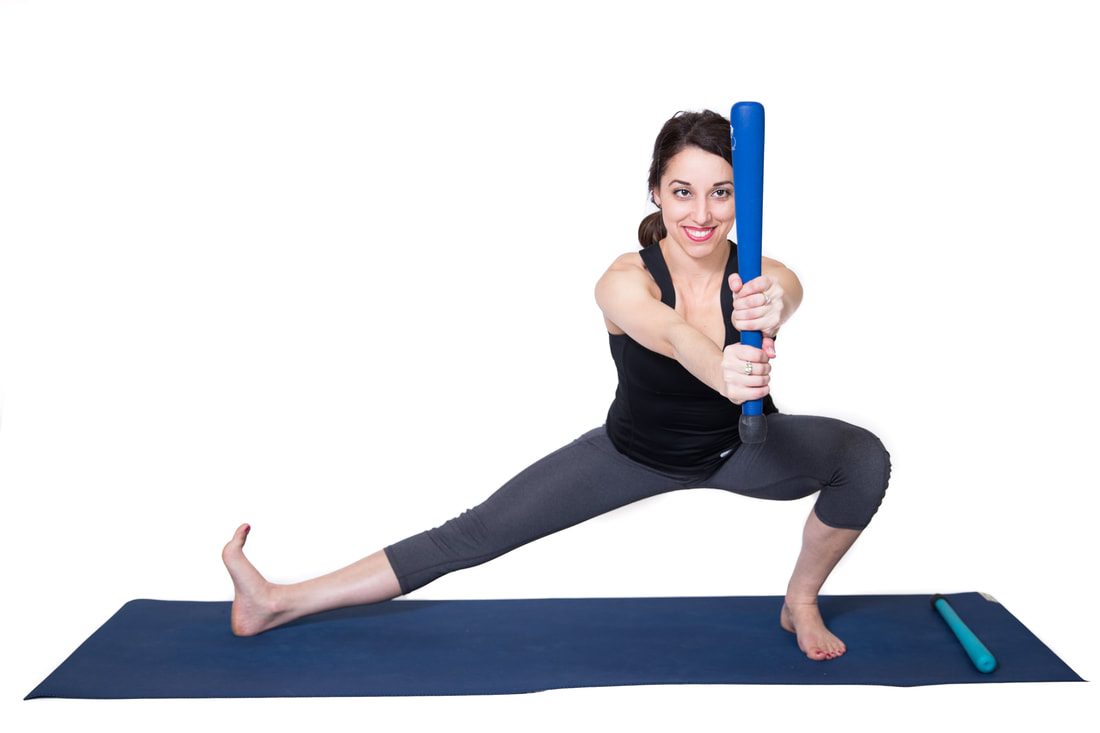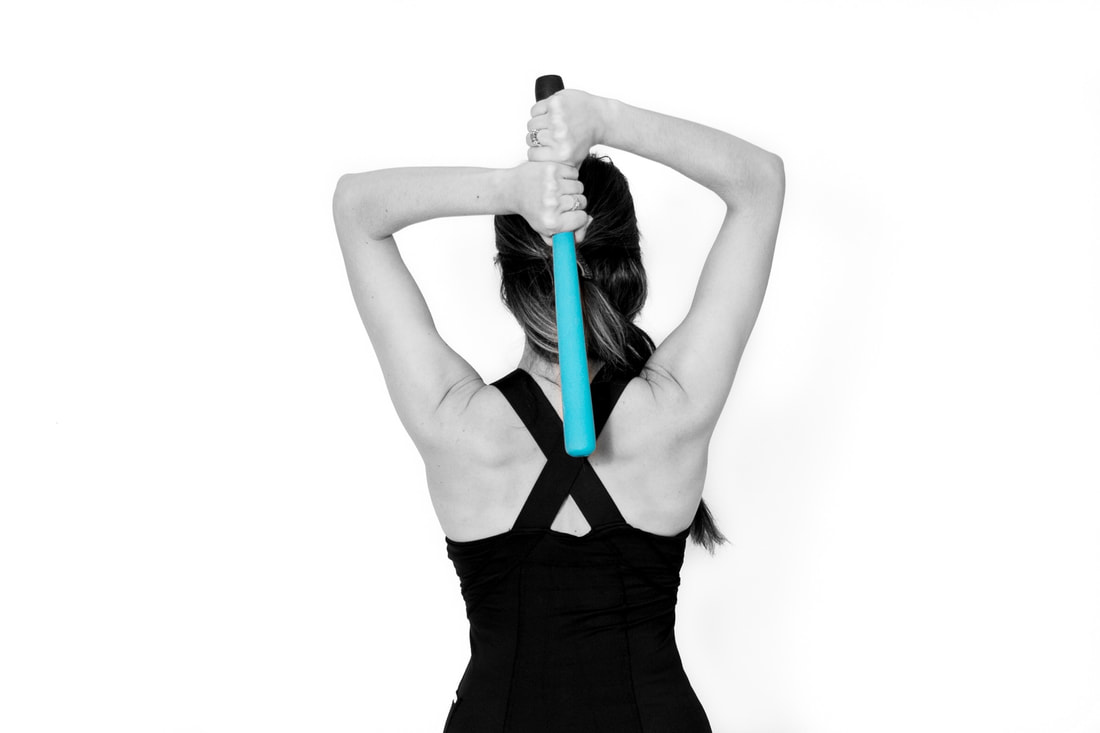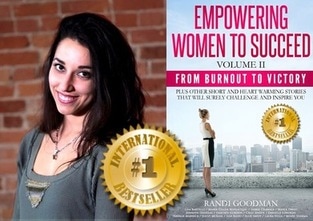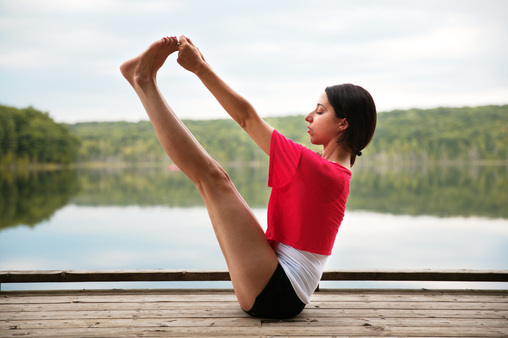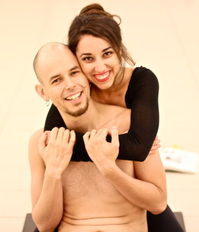We're Virtual!
Click the link below to
learn more about our online studio! |
Chair Yoga & Mobility
|
Did you know that many companies can lose billions of dollars each year from loss of productivity due to presenteeism? Presenteeism occurs when an employee is present at work, but due to an unaddressed physical or emotional issue, are distracted to the point of reduced productivity.
It's estimated that presenteeism could cost Canadian businesses 15 to 25 billion dollars per year.
It's estimated that presenteeism could cost Canadian businesses 15 to 25 billion dollars per year.
Align and Refine Your Yoga Practice
This is a great way to improve your yoga practice.
Learn proper alignment , what affects basic postures have on your body and mind, and why we do each posture a specific way.
You will also learn how to modify postures to suit the needs of
your body structure!
Dates TBA
This is a great way to improve your yoga practice.
Learn proper alignment , what affects basic postures have on your body and mind, and why we do each posture a specific way.
You will also learn how to modify postures to suit the needs of
your body structure!
Dates TBA
Feeling anxious, down, overwhelmed or stressed?
Then Join Natalie for this unique 6 week Movement for Mental Health yoga program.
Depression, anxiety and chronic stress are long-term struggles that can be absolutely debilitating, and make it extremely difficult to find a sense of relaxation and calmness.
As someone who has struggled with mental health, Natalie's designed these classes to educate and empower people to live better with simple practices that help increase mental clarity, improve mood and boost self-awareness.
Then Join Natalie for this unique 6 week Movement for Mental Health yoga program.
Depression, anxiety and chronic stress are long-term struggles that can be absolutely debilitating, and make it extremely difficult to find a sense of relaxation and calmness.
As someone who has struggled with mental health, Natalie's designed these classes to educate and empower people to live better with simple practices that help increase mental clarity, improve mood and boost self-awareness.
Hours of CEU Credit vs. Certification
Option 1 -CEU Credit: This session content is CE Pre-Approved by NCTRC. Attending this course qualifies for 21 contact hours of credit for continuing education with the NCTRC and the Yoga Alliance. You will be issued a letter of completion at the end of the program.
To apply for continuing education credit, you should go through your agency to be granted approval. Contact me directly with any questions, info@smyoga.ca.
Option 1 -CEU Credit: This session content is CE Pre-Approved by NCTRC. Attending this course qualifies for 21 contact hours of credit for continuing education with the NCTRC and the Yoga Alliance. You will be issued a letter of completion at the end of the program.
To apply for continuing education credit, you should go through your agency to be granted approval. Contact me directly with any questions, info@smyoga.ca.
Chair Yoga & Mobility Offers:
|
Criteria For Attending Seminar:
|
Intro to
|
Dates: March 31 - April 28, 2018 |
" I created Sacred Mountain Yoga so that people
who felt broken, sad and hopeless could
have a chance at living well. "
-Natalie Marnica
who felt broken, sad and hopeless could
have a chance at living well. "
-Natalie Marnica
"Our Company made a commitment to try yoga at work after reviewing studies that
adding yoga into your work day can relieve your stress, Improve your mood and even increase your focus. The other deciding factor was no special requirements to participate are needed. You don’t need to be fit. You don’t need to wear the latest in groovy clothing,
and you don’t need major equipment.
All you need is you, a mat, a place to practice, and or course, a great instructor!
We were happy to find Natalie Marnica 2 years ago. Our employees who participate in her yoga program report a better sense of well-being and have more coping mechanisms to draw from when things get tough. We have also noticed much more co-operative workplace collaboration amongst our employees."
- Elizabeth - Tel-e Group Corporation Canada
According to Statistics Canada and the Canadian Mental Health Association:
- Mental illness indirectly affects all Canadians at some time, through a family member, friend or colleague (Canadian Mental Health Association, 2013).
- Mild depression, which is influenced by life stressors within and outside of the workplace, is particularly common and is costly to employers given its high prevalence and high aggregate productivity loss (Allen, Hyworon, Colombi, 2010).
- The prevalence of reported depression appears to be rising. In a 2012 workplace survey of over 6,600 Canadian employees, 14% reported being currently diagnosed with clinical depression and 8% more believed they had depression, but had not been diagnosed. A further 16% reported that they had experienced depression in the past. (Ipsos Reid, 2012).
- The cost of absenteeism due to staff experiencing role overload is estimated to be between $4.5 – $6 billion/year.(Health Canada, 2008).
- 16% of working Canadians say their place of work is a ‘frequent’ (11%) or an ‘ongoing’ (5%) source of feelings of depression, anxiety or other mental illness, according to an Ipsos Reid poll. (Ipsos Reid, 2013).
- Nearly half (47%) of working Canadians ‘agree’ (15% strongly/32% somewhat) that their ‘work and place of work is the most stressful part of their day and life. (Ipsos Reid, 2013).
- Rates of depression, self-reported medication abuse, an inability to concentrate, or having sleeping problems were higher among injured employees compared to the general working Canadian population (O'Hagan, Ballantyne, & Vienneau, 2012).
The practices given may include some of the following tools. The tools are selected and modified based on each individual and their respective needs:
- mindful breathing techniques and practices (prānāyāma)
- yoga āsana(s)- modified physical postures
- healing sounds- mantra(s) and chanting
- meditation and mindfulness techniques
- yoga philosophy and principles
- visualization
- guided relaxation (in person or a custom, take-home recording)
- diet and lifestyle guides (based on Ayurvedic principles)
- connecting to nature
- and more...
Tools of Yoga
The consultation process:
This process is repeated according to the needs of the student. After the initial 90-min consultation, each follow up visit is 60-min. The duration between visits ranges depending on the individual and quality of their home practice. In the beginning, I generally see students weekly and/or bi-weekly. As students become established in their own practice visits begin to be less frequent, monthly, and then on an "as needed" basis.
- The student has an initial 90-min consultation; which includes a physical assessment and interview outlining their specific concerns/problems/ailments and are then guided through their first therapeutic yoga practice. The student then leaves with a custom practice and take-home diagram. (time between visits is established in initial consultation)
- The student comes in for a follow-up session (60-min) and discusses the results of their practice; what worked, what alleviated or aggravated their existing condition, quality of their practice, etc. The practice is then revised according to the new information, a new take-home diagram is given and follow up session is scheduled.
This process is repeated according to the needs of the student. After the initial 90-min consultation, each follow up visit is 60-min. The duration between visits ranges depending on the individual and quality of their home practice. In the beginning, I generally see students weekly and/or bi-weekly. As students become established in their own practice visits begin to be less frequent, monthly, and then on an "as needed" basis.
Join Alex and Natalie as they share their knowledge and skill of partner yoga in this partner yoga seminar.
Learn the principles of safety, touch, communication, grounding, balance and trust in a step-by-step progression.
In this seminar you will learn to incorporate playful and relaxing Partner Yoga poses into your classes and create basic practices for two using the principles of safety, grounding, balance and touch.
This training is open to new and existing yoga teachers. It will help you to learn to communicate with clarity and compassion, develop a greater sense of comfort when working with different students and how to build trusting relationships.
It also assists in developing a deeper connection and understanding of ourselves as students and as teachers. This practice offers the tools to recognize our aversions and conventional assumptions of what we do and do not like, and allow ourselves to connect to other people without fear.
Partner Yoga brings two or more people together through movement, play, breath, touch and intimacy in order to deepen the impact and experience of a yoga practice.
Learn the principles of safety, touch, communication, grounding, balance and trust in a step-by-step progression.
In this seminar you will learn to incorporate playful and relaxing Partner Yoga poses into your classes and create basic practices for two using the principles of safety, grounding, balance and touch.
This training is open to new and existing yoga teachers. It will help you to learn to communicate with clarity and compassion, develop a greater sense of comfort when working with different students and how to build trusting relationships.
It also assists in developing a deeper connection and understanding of ourselves as students and as teachers. This practice offers the tools to recognize our aversions and conventional assumptions of what we do and do not like, and allow ourselves to connect to other people without fear.
Partner Yoga brings two or more people together through movement, play, breath, touch and intimacy in order to deepen the impact and experience of a yoga practice.
Level 1 : Learn fundamentals of partner yoga practices. Explore poses that build trust , communication and self-awareness. Suitable for all levels of practitioners.
Level 2: Deepen your experience of partner yoga. Explore deep stretches, strengthening postures and develop greater balance and trust with your partner. This workshop will build the strength and confidence you need to learn to fly! Open to students who have attended any one of our previous workshops or have related experience and training.
Level 3*: Learn to fly! Explore intermediate partner yoga poses and basic acro yoga principles and practices. Learn to support (base) and to be supported (flyer), bone stacking and counter balancing.
*Level 3 is only open to students who have participated in level 1 and 2 or have relative previous experience and training*
Level 2: Deepen your experience of partner yoga. Explore deep stretches, strengthening postures and develop greater balance and trust with your partner. This workshop will build the strength and confidence you need to learn to fly! Open to students who have attended any one of our previous workshops or have related experience and training.
Level 3*: Learn to fly! Explore intermediate partner yoga poses and basic acro yoga principles and practices. Learn to support (base) and to be supported (flyer), bone stacking and counter balancing.
*Level 3 is only open to students who have participated in level 1 and 2 or have relative previous experience and training*
What is Yoga Therapy?
This definition is offered by my teachers and mentors at Yoga Therapy Toronto:
Yoga Therapy (also known as Yoga Cikitsa) is being promoted as the wave of the future by many Yoga professionals, and in Yoga-related books and magazines. It is not a new style or branch of Yoga: it is Yoga. Yoga is and always has been a holistic healing discipline that offers a broad range of tools for supporting health, healing and personal transformation. One of the key advantages of a system like yoga is that it views the human system as a holistic entity that is made up different dimensions (physical body, breath, mind, personality traits, and emotions) that are mutually dependent on and mutually influence one another.
Though yoga is today associated mostly with postures, it is just one of the many tools that yoga has to offer. Some of the most profound tools that yoga offers include: conscious breath regulation, meditative practices, visualizations, use of vocal sounds, life style changes and dietary recommendations among many others. This makes the healing process very comprehensive and extremely specific to the individual.
The other key advantage of yoga is that it empowers people in the healing process. Rather, than being a passive recipient of treatment, the student is actively engaged in the path to well-being and is primarily responsible for their recovery. The role of the teacher is that of guide, directing the student to tools for recovery and teaching the right way to implement these tools. Once this is done, it is then the role of the student to practice it diligently, observe changes, and notify the teacher for any changes. Thus the healing comes from within the student, rather than from the outside. This powerful system has helped many thousands of students who have sought yoga as the solution to their problems.
This great art was perfected and presented by T Krishnamacharya, one of the most important yogis of our modern times. He healed and revived many people from all kinds of problems through this holistic, yet simple approach.
This definition is offered by my teachers and mentors at Yoga Therapy Toronto:
Yoga Therapy (also known as Yoga Cikitsa) is being promoted as the wave of the future by many Yoga professionals, and in Yoga-related books and magazines. It is not a new style or branch of Yoga: it is Yoga. Yoga is and always has been a holistic healing discipline that offers a broad range of tools for supporting health, healing and personal transformation. One of the key advantages of a system like yoga is that it views the human system as a holistic entity that is made up different dimensions (physical body, breath, mind, personality traits, and emotions) that are mutually dependent on and mutually influence one another.
Though yoga is today associated mostly with postures, it is just one of the many tools that yoga has to offer. Some of the most profound tools that yoga offers include: conscious breath regulation, meditative practices, visualizations, use of vocal sounds, life style changes and dietary recommendations among many others. This makes the healing process very comprehensive and extremely specific to the individual.
The other key advantage of yoga is that it empowers people in the healing process. Rather, than being a passive recipient of treatment, the student is actively engaged in the path to well-being and is primarily responsible for their recovery. The role of the teacher is that of guide, directing the student to tools for recovery and teaching the right way to implement these tools. Once this is done, it is then the role of the student to practice it diligently, observe changes, and notify the teacher for any changes. Thus the healing comes from within the student, rather than from the outside. This powerful system has helped many thousands of students who have sought yoga as the solution to their problems.
This great art was perfected and presented by T Krishnamacharya, one of the most important yogis of our modern times. He healed and revived many people from all kinds of problems through this holistic, yet simple approach.
